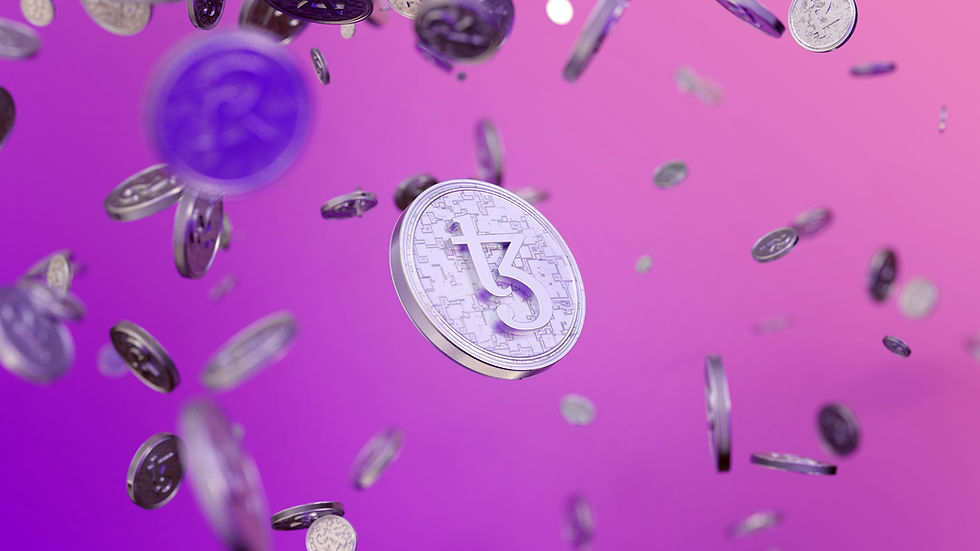4 Key Terms for Blockchain Gaming
- Michael Paulyn
- May 23, 2022
- 2 min read
Updated: Oct 21, 2023
There's so much more to the blockchain than just Bitcoin. The gaming world is one of the industries set to see massive disruption soon. What seems to be a sure thing is that the video gaming industry is set to be rocked over the next couple of years and decades.

What Is Blockchain Gaming?
Many people worldwide recognize that there's a real possibility to create value. Blockchain gaming is no different. The power of blockchain can create opportunities out of thin air, materializing concepts such as virtual economies and gaming economies.
What is so revolutionary about blockchain gaming is how it's structured. With being decentralized, all gaming assets are dispersed equally amongst all players, with no one being able to dominate anyone else.

These assets, NFTs or non-fungible tokens, are the most common way players exchange value and earn their cryptocurrencies.
4 Key Terms for Blockchain Gaming
1. Play-to-Earn
Play-to-earn's number one term for blockchain gaming is one of the top ones. Compensation for players is through "in-games economics," where users are free to buy and sell assets within the game.
In contrast, where traditional video games work off a pay-to-play or free-to-play model, players are free over their in-game commodities. For example, assets like digital weaponry, tools, coins, and other gaming items were all available for players to acquire.

2. Pay-To-Earn
Number two on the list, paid to earn, is where players pay upfront before entering the blockchain gaming world. The medium of exchange is usually an NFT, modeled off the classic play-to-earn video game structure. Players hope their digital assets will increase over time, leaving them a tidy profit once ready to cash out.
3. GameFi
The play-to-earn and pay-to-earn models commonly fall under GameFi, a general term for blockchain gaming referring to earning cash while gaming. Typically, consumers will only pay a little need to be more knowledgeable for each transaction for buying and selling their digital assets, giving GameFi a big draw for players.

4. Asset Ownership In-Game
Last, many blockchain gamers might be leery of entering the world of in-game assets that aren't removable from the specific game. In this case, players lose everything when a gaming platform dies off and goes out of business.
Hungry for more? Join me each week, where I'll break down complex topics and dissect the latest news within the cybersecurity industry and blockchain ecosystem, simplifying the world of tech.





Comments